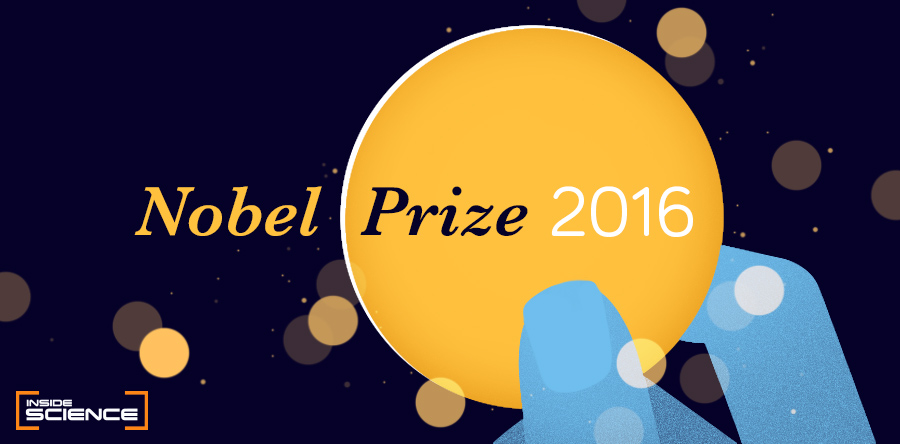Coverage Of The 2016 Nobel Prizes Begins Next Week
(Inside Science) -- On October 3, Inside Science will distribute the first of several news stories about this year's science and science-related Nobel Prizes. We will send brief stories soon after the prize announcements, followed by more comprehensive stories by the early afternoon. We will also post additional information and multimedia about the prizes on our Twitter account and Facebook page each day.
If you're up early, you can follow along with the excitement through the livestream of the announcements directly from Sweden at nobelprize.org.
Throughout the week, return to this link to find new additions for coverage of the 2016 Nobel Prizes from Inside Science.
Schedule
Monday, October 3: The Nobel Prize in Physiology or Medicine
Tuesday, October 4: The Nobel Prize in Physics
Wednesday, October 5: The Nobel Prize in Chemistry
Each day we'll deliver a short summary story after the announcement, followed by a more comprehensive story in the middle of the day.
Predictions
Thomson Reuters publishes its predictions each year, and they have again this year highlighted some very popular picks for the winners. For Physics they point to three likely winners, including the discovery of gravitational waves, announced in February 2016 to much ballyhoo. For the Chemistry Prize they highlight three more promising discoveries, including the genetic editing tool known as CRISPR-cas9. For the prize in Physiology or Medicine they highlight three advances in cellular and molecular biology -- including T cell activation, how programmed cell death contributes to cancer immunotherapy, and finally, for discoveries related to proteins known as TOR and mTOR, which may have roles to play in cancer, Alzheimer's disease and normal aging.
Here are our predictions from 2014 and 2015 for the physics prize, which may be useful for background if the discovery of gravitational waves doesn't win.
Info and Background
Speaking of gravitational waves, Inside Science has covered the topic several times. Here are our top stories on the subject:
Gravitational Waves Spotted, Confirming Einstein's Ripples In Spacetime
For Some, Einstein's Space-Time Ripples Have Yet To Break Their Silence
How To Kill A Gravitational Wave
Nobel Prizes in these subjects can only be awarded to three or fewer individuals. This often produces some controversy since modern science is very much a collaborative endeavor that relies on the contributions of many people.
The CRISPR method has been the subject of much media coverage in recent years, both because the method is revolutionary and because of the raging, ongoing patent dispute going on between several early researchers.
Our friends at Physics Today have a great story about the two types of scientists who almost win the Nobel Prize, based upon an analysis of nominees for the Physics prize between the prize's inception in 1901 and 1965. Don't expect to read about this year's nominees, however. The Nobel organization keeps even their list of nominees secret for at least 50 years.
Set your alarm clocks early on Monday; time, tide and Nobel announcements wait for no one.


